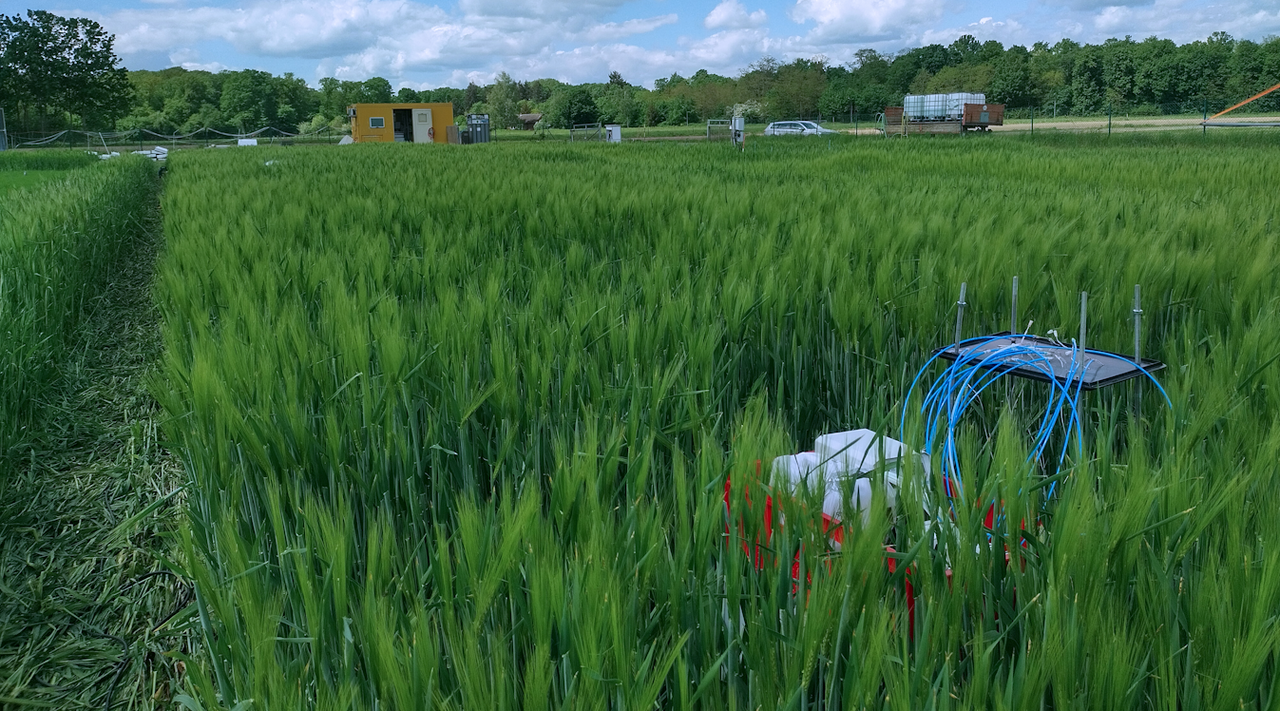Project
MinDen - Measures for the reduction of emissions from denitrification

Measures to reduce direct and indirect climate-relevant emissions that result from denitrification in agricultural soils
Denitrification is an important nitrogen loss pathway in agriculture. In the MinDen project, we are investigating the effects of crop protection measures (fertilization, soil tillage and crop rotation) on denitrification.
Background and Objective
Gaseous emissions from denitrification: nitrous oxide (N2O), nitric oxide (NO) and molecular nitrogen (N2), cause crop-relevant nitrogen losses and direct emissions. The level of emissions is highly variable and dependent on management, soil properties, and climatic factors. Currently, there is little knowledge on practical crop management measures to mitigate direct and indirect emissions from denitrification, especially since the complex process is difficult to measure at the field scale. Besides the field scale, denitrification losses can also be quantified by models, but these are often still uncertain and insufficiently validated with respect to N2 losses. Therefore, the aim of the joint project is to identify mitigation measures practicable from a crop production point of view with regard to N2 and N2O emissions from denitrification for arable farming systems in Germany. We aim to improve the state of knowledge on denitrifying nitrogen losses through field and laboratory experiments and using it to parameterize, validate and apply simulation models.
Target Group
Science, regulating authorities, farming advisors and extension services, agricultural practice
Approach
In the joint project MinDen, denitrification losses in the areas of fertilization, tillage, and crop rotation are investigated and modeled experimentally at the field and laboratory scale.
In the work package Experiments, different field and laboratory experiments are carried out to investigate measures for optimizing slurry application, tillage and incorporation of crop residues and catch crops for their effectiveness in preventing N losses from denitrification. In the field experiment on optimization of slurry application, the effect of different fertilizer application techniques on gaseous N losses (N2O, N2, NO, NH3), N leaching and N uptake is investigated at three field sites in a maize-wheat crop rotation. The influence of pre-treatment and incorporation depth of organic fertilizer on N2 and N2O emissions after application depending on soil water content will be tested in laboratory experiments. The tillage system optimization measure will be investigated on monolith lysimeters from a permanent soil observation experiment in a cereal crop rotation for N2 and N2O emissions and their control variables. To test the incorporation of crop residues and catch crops, laboratory incubation experiments will be conducted on the effect of incorporation methods and pre-crushing of catch crops as a function of soil water content.
In the work package Modeling, the biogeochemical models LDNDC, DNDC-CAN and MONICA will be further developed and improved using existing measurement data and targeted field experiments. The improved models will be used as a model ensemble to calculate a Germany-wide cadastre for N-losses from agricultural soils and to spatially and temporally assess mitigation potentials on a regional and national scale.
Subsequently, the results from the experimental and modeling work areas will be evaluated together and the knowledge transfer of the results to consulting, practice, authorities and politics will take place.
Thünen-Contact

Involved Thünen-Partners
Involved external Thünen-Partners
- Georg-August-Universität Göttingen
(Göttingen, Deutschland) -
Justus-Liebig-Universität Gießen
(Gießen, Deutschland) -
Karlsruher Institut für Technologie (KIT)
(Garmisch-Partenkirchen, Deutschland) - Julius Kühn-Institut - Bundesforschungsinstitut für Kulturpflanzen (JKI)
(Quedlinburg, Braunschweig, Groß Lüsewitz, Kleinmachnow, Deutschland)
Funding Body
-
Federal Office for Agriculture and Food (BLE)
(national, öffentlich)
Duration
12.2022 - 11.2026
More Information
Project funding number: 2822ABS027
Project status:
ongoing

![[Translate to English:] [Translate to English:]](/media/_processed_/6/4/csm_titel_CO2Kampagne8_afeea2273e.png)
![[Translate to English:] [Translate to English:]](/media/_processed_/4/1/csm_titel_93px_CO2Kampagne8_9b0f3354d4.png)
![[Translate to English:] Logo des Bundesministerium für Ernährung und Landwirtschaft](/media/allgemein/logos/BMEL_Logo.svg)